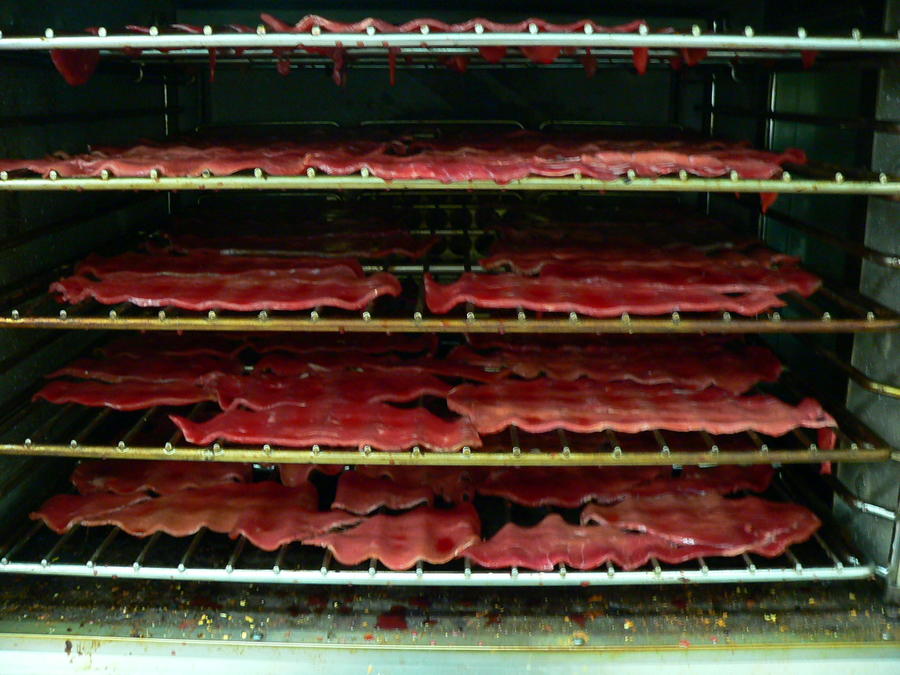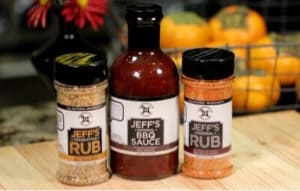Maybe I'm wrong, but I always thought jerky is always "cooked" and smoked and if its cured its called kippered.
You know, that is a good point. And, considering the fact that adequate exposure to high enough concentrations of hardwood smoke on the surface of meat acts as a preservative by discouraging invasive/harmful bacteria from attacking the surface and colonizing, then, a properly smoked and dried meat should be safe without cure, to a reasonable point where the meat will eventually begin to degrade and become unsuitable for consumption from water or water-vapor infiltration, or becoming rancid due to having too much fat content (generally considered safe, but not palatable due to odor and taste). Smoking and drying is an age-old method for preserving meats, after-all, as well as salting/drying (a form of dry-curing), and in certain cases, drying alone (climate/environment permitting).
I have yet to make jerky without cure myself, maybe due to placing more trust in a modern, quick, proven method (time is something some of us don't seem to have enough of nowadays), rather than wanting to use methods that many food authorities would view with skepticism and raising their red flags, but again that may be due to their lack of knowledge in the process, as well as my own, and again, the extra time required to perform the process correctly. The, after considering all of the proceeding thoughts, I would have to wonder if a water soak for salt removal would also remove certain amount of nutritional value, such as protein, and then, how much flavor from the meat would be lost...this, because at this point, I do not know, because I have not researched it based on a thesis...although would be interesting, it would also quite time consuming. Ah, there's that nasty four-letter word again...time...LOL!!!
Regarding Kippered, if you take a filet of herring, salt it to dry-cure, re-hydrate to remove excess salt through osmosis by soaking in water, and then, smoke it and cook to minimum safe internal temps to create a kippered smoked herring, it is a bit different process and also results in different storage requirements than wet-curing with nitrite/salt and just smoking and drying as many do with beef jerky. The kippered snacks (herring) need to be refrigerated and eaten promptly, or, canned/frozen for long-term storage, mainly due to the water content being so high. With jerky, if properly cured, dried, and packaged, can be stored for several months or longer at room temperature, due to it's low water content, which aids in the long-term continued anti-microbial properties of the meat. Water is necessary to support growth/colonization of bacteria in foods. If the water activity is too low for bacteria to thrive, then, even if they may be present in low numbers, they cannot colonize and reproduce, which prevents them from producing high enough concentrations of toxins (bacterial waste) in the meat to be lethal when consumed by humans. In essence, low water activity in food forces bacteria to remain dormant. Just remember: water is the life-giving fluid...the less water there is available, the less chance for life...this applies to bacteria and viruses, just as much as every other form of life.
Whatever method for preserving you decide to use, be sure it's from a trusted source, as there are many ways to accomplish basically the same thing, and there may be someone how has done "it" a thousand times and never suffered any ill effects. Their source for meat may not be the same as yours, especially if you don't live in the same area. How animals are raised may have an impact on what could be considered an acceptable method for preserving. Some methods may be better suited to certain climates, or those persons with certain equipment. If time (again) could be a constraint, using a faster method (such as with a cure additive) may be your best option.
On a food preservation-related topic, one of the critters we try to discourage from taking up residence in our food during prep/storage, being bacterium Clostridium botulinum, which as many of us know was a huge problem just a few hundred years ago, is now for the most part controlled due to safe food prep/storage practices, but it should still be of concern for anyone using food preservation methods so it does not become an issue for you...it's still here...well, almost everywhere...so, avoid it:
http://www.cdc.gov/nczved/divisions/dfbmd/diseases/botulism/
Anyway, that's all I have time for this evening...getting late and it's time (there's that nasty four-letter word, again) for eyelid inspections, as I'm working 6 days/week lately...busy, busy, busy.
May your jerky be great, and may you have the foresight to make a large enough batch to enjoy it for months while sharing it with friends...hey, if they didn't get to partake of it, how will they know if it's good? Huh? LOL!!!
Eric






